Origin 2020: Brett Kimmorley imparts some valuable advice to Blues halfback Nathan Cleary
Brett Kimmorley wished he could sink into the Suncorp Stadium turf 15 years ago. Nathan Cleary wanted to do the same last weekend. Origin I in Adelaide on Wednesday is certainly defining for the 22-year-old.
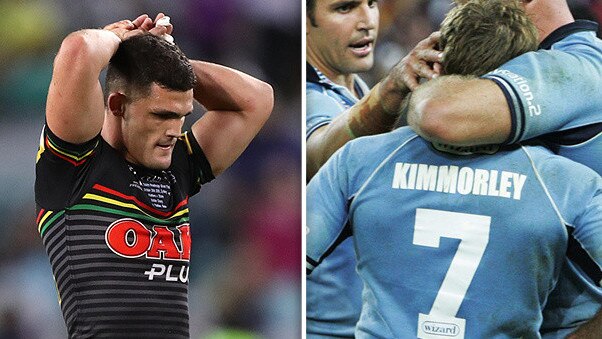
Blues
Don't miss out on the headlines from Blues. Followed categories will be added to My News.
Brett Kimmorley remembers how one pass changed him. Not just on the football field, but in life.
Which, if those surrounding NSW and Penrith halfback Nathan Cleary care, will urge the young half to pick up the phone to “Noddy”.
Kimmorley changed as a player, but also as a person, after throwing the final pass in game one of the 2005 State of Origin series.
Catch Fox League’s news, views and analysis on Kayo. New to Kayo? Get your 14-day free trial & start streaming instantly >
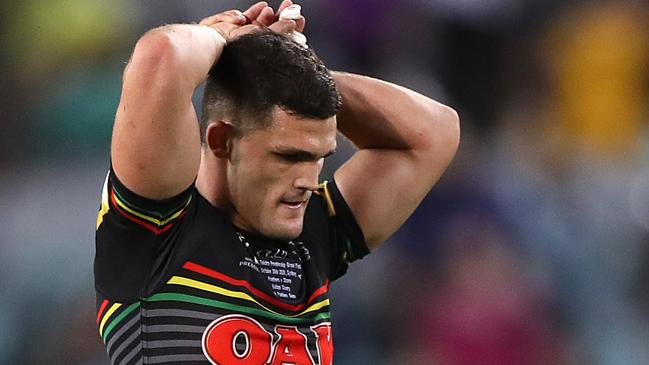
NRL LATEST
The truth behind Bennett’s feud with Mal
Kent: How Bennett turned back time with Maroons squad
The 12 Broncos rejects ready to inspire Maroons
“It was the most heartbreaking moment of my career — up until recent years, I had no other feeling like it,” the former NSW halfback said.
That’s some type of statement, “up until recent years” … we’ll unpack that in a moment.
Spotting Blues centre Matt Cooper to his left and with space to move out wide, Kimmorley saw what Cleary saw in the grand final for Penrith last Sunday night: an opportunity on his left to score a try.
Kimmorley’s now infamous pass failed to reach Cooper, cut off by the palms of Queensland fullback Matt Bowen, who sprinted away to score and win the match for the Maroons.
Cleary’s lofted-ball last Sunday was as defining for Penrith, landing not in the hands of his outside men but in the clutches of Melbourne winger Suliasi Vunivalu, whose first-half try pushed the Storm to a soul-sapping 16-0 lead.
Kimmorley wished he could sink into the Suncorp Stadium turf 15-years ago. Cleary wanted to do the same at ANZ last weekend.
Origin I in Adelaide on Wednesday is defining for 22-year-old Cleary.
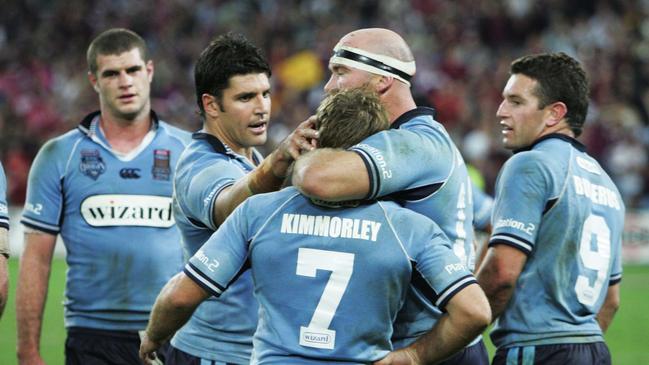
He already showed a level of fortitude when he went public in declaring that given the same chance, it’s a pass “he would throw again”.
What’s interesting is that Kimmorley, who was seven years older than Cleary and boasted 100 more games of NRL experience than him when he threw the pass, said something similar to the press pack that followed his every move in the aftermath of 2005.
Kimmorley vowed to move on, but it wasn’t enough to save him from being replaced by Andrew Johns for Origin II and III.
But what is said on national television and the reality can be different, which is why Cleary’s actions in Adelaide will define him.
In the weeks and months after Kimmorley’s pass, he ran around carrying doubt on his shoulders and mental scarring that stopped his brain from telling his hands to pass long and, even more specifically, right to left.
“As a playmaker, when you question whether you should or shouldn‘t pass it, that’s where your issues start,’’ Kimmorley said this week.
“After I threw the pass, I hesitated for a number of months with that doubt and fear.
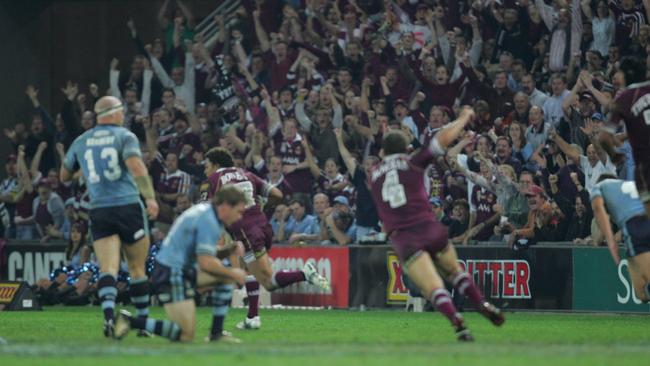
“I definitely struggled confidence-wise and definitely struggled throwing the ball long for a little while.
“You’re scared of throwing it long beyond that because you doubt yourself.
“I didn‘t get the opportunity to play the following Origin match, which scarred me for a while and certainly hurt my confidence, but I definitely think it makes you a lot more resilient.’’
Which is where Cleary should view Kimmorley as a living example of how to rebound from disappointment.
Without the setback, without the hurt, criticism and embarrassment of even being able to look his teammates in the eye, Kimmorley wouldn’t have had the resilience to play for another five years in the NRL, return to the Origin arena in 2007, 2009 and 2010 and, more than anything, cope with what he has already described as “no other feeling like it” — the devastating pain from the death of his wife, Sharnie, to cancer, three years ago.
“What you find in the end is, by going to training and practising and believing in yourself again, you cop the criticism going forward without feeling hurt by it,” Kimmorley said.
“(The pass) taught me some life lessons and made me a lot more resilient throughout that process.
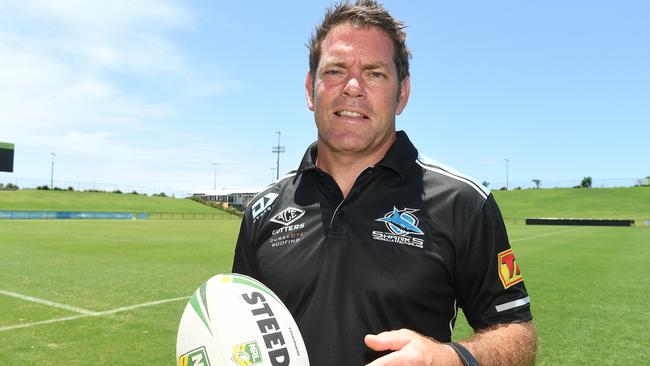
“When I first came to Cronulla (in 2002), (supporters) told me to piss off because I was viewed as squeezing (fellow half) Preston (Campbell) out.
“That made me more resilient, and then the next major blow was that ’05 intercept pass.
“I’ll tell you, all those bits of resilience that you learn, it certainly helped my life a few years ago.
“And the reason why (Cleary) is the player he is — it’s because he backs himself to go out and play what is in front of him.
“Seventeen wins a row this year for Penrith and a big part of that is all about Nathan Cleary.
“He’s shown enormous resilience already — how he handled a testing start to his NRL career, then as the son of the head coach and last year handling State of Origin.
“I even saw that resilience last Sunday in the grand final. Nathan didn’t wave the white flag, he kept coming to score the final try of the match.
“He can’t make up for throwing the pass, but he’s earned the right to play halfback in Game I for NSW.
“Are you dirty and s****y that the pass didn’t work? One hundred per cent.
“But you back yourself and you appreciate the good times — because if he’s resilient, those good times will come again.’’

